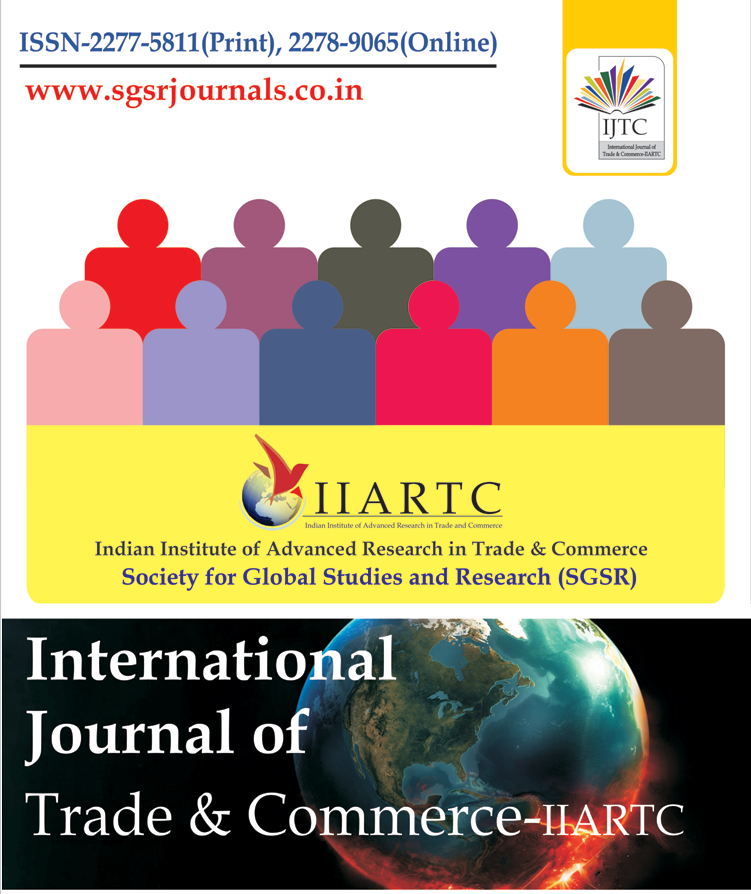Home ⇨ International Journal of Trade & Commerce-IIARTC

International Journal of Trade & Commerce-IIARTC
Impact Factor (IF):5.135 (COSMOS), IF:7.249 (ISRA), IF:3.721 (ISI)
ISSN:2277-5811 (P), ISSN:2278-9065 (O)
Frequency: Half Yearly
Financial Inclusion through Micro Finance: Jimma - Ethiopia
Micro finance institutions (MFIs) make important contributions to economic, political and social development of any country. The aim of this study was to find out the coverage of financial management practices employed by the MFIs and their effect on financial performance of MFIs. The specific objectives of this study were to evaluate effects of independent variables of cash management practices, Account Receivables practices, Budget management practices, Internal control, source of finance, Accounting information systems and financial reporting and analysis practices on financial performance of MFIs in Jimma Zone. The study used both primary and secondary data. Primary data were collected through questionnaires administered from MFIs employees and interview of branch managers. Secondary data were collected from yearly or quarterly published reports, journal of articles, AEMFI reports and other relevant official reports. A total of 66 samples were selected using judgmental sampling techniques. Descriptive and inferential statistics of chi-square test of independence (significance) were applied in the study. The findings indicated that the above independent variables have significant (positive) relation with financial performance of MFIs which is measured by ROA. Finally, the researcher recommended: as means to discharge responsibility and accountability and to show service giving efforts, operational efficiency and effectiveness to contribution to the development endeavor of the country, they should establish a well organized financial management practices, Board should monitor regularly the financial management system, and donors should give capacity building training and transfer funds as per the original plan for MFIs employees.
Author:Danbobi Note Dido
Abstract:Micro finance institutions (MFIs) make important contributions to economic, political and social development of any country. The aim of this study was to find out the coverage of financial management practices employed by the MFIs and their effect on financial performance of MFIs. The specific objectives of this study were to evaluate effects of independent variables of cash management practices, Account Receivables practices, Budget management practices, Internal control, source of finance, Accounting information systems and financial reporting and analysis practices on financial performance of MFIs in Jimma Zone. The study used both primary and secondary data. Primary data were collected through questionnaires administered from MFIs employees and interview of branch managers. Secondary data were collected from yearly or quarterly published reports, journal of articles, AEMFI reports and other relevant official reports. A total of 66 samples were selected using judgmental sampling techniques. Descriptive and inferential statistics of chi-square test of independence (significance) were applied in the study. The findings indicated that the above independent variables have significant (positive) relation with financial performance of MFIs which is measured by ROA. Finally, the researcher recommended: as means to discharge responsibility and accountability and to show service giving efforts, operational efficiency and effectiveness to contribution to the development endeavor of the country, they should establish a well organized financial management practices, Board should monitor regularly the financial management system, and donors should give capacity building training and transfer funds as per the original plan for MFIs employees.




